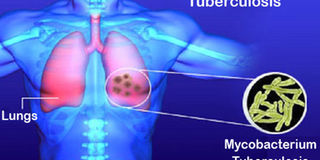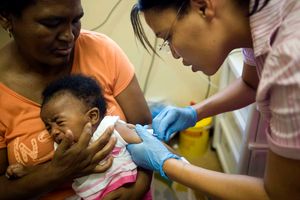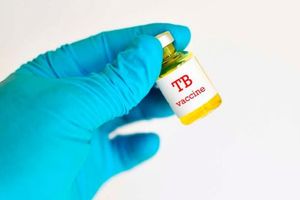TB patients to access critical drug at lower prices

Unlike many antibiotics, bedaquiline doesn't attack the bacteria directly and instead targets the enzymes that the disease relies on for its energy.
What you need to know:
- Bedaquiline is a core component of nearly every regimen recommended by WHO for treatment of DR-TB.
- Bedaquiline, together with pretomanid, linezolid, and moxifloxacin comprise BPaLM, the preferred regimen recommended by the WHO for treatment of drug-resistant TB.
Kenyans can now access Bedaquiline, a drug for treatment of drug resistance tuberculosis, at half the price, thanks to Stop TB’s Global Drug Facility.
Under the new pricing structure, the price reduces by 55 per cent – with a six-month treatment course now costing US$130 as opposed to US$289.
The price reduction by the Johnson & Johnson and Lupin in low- and middle-income countries was as a result of an open, competitive tender valid until December 2024.
“No one should have to suffer from drug-resistant tuberculosis simply because they cannot afford treatment. This historic price reduction will broaden access to this life-saving drug and keep us on the path to ending TB by 2030,” said Dr Atul Gawande, assistant administrator of the United States Agency for International Development’s (USAid) Global Health Bureau.
Dr Lucica Ditiu, executive director of the Stop TB Partnership, said the price reduction is a momentous breakthrough in the fight to end tuberculosis.
“The rise of drug-resistant TB is a huge threat to the fight against the disease. Worryingly, every year around 300,000 people with drug-resistant TB remain missed by the health services, therefore potentially spreading the infection.”
“Today marks the culmination of several years of a collaborative effort across numerous stakeholders, including USAid, Stop TB, the World Health Organization (WHO), the Global Fund, pharmaceutical manufacturers, national TB programmes and others to build a competitive bedaquiline market able to deliver quality-assured, affordable bedaquiline to low- and middle-income countries”, said Dr Brenda Waning, Global Drug Facility chief.
Bedaquiline is a core component of nearly every regimen recommended by WHO for treatment of DR-TB. Bedaquiline, together with pretomanid, linezolid, and moxifloxacin comprise BPaLM, the preferred regimen recommended by the WHO for treatment of drug-resistant TB.
For people with resistance to moxifloxacin, WHO recommends the use of BPaL (bedaquiline, pretomanid, and linezolid) for drug-resistant TB treatment. The reduction in the price of bedaquiline will result in an overall decrease in the cost of the six-month treatment regimens for drug-resistant TB.
Dr Tereza Kasaeva, director of WHO’s Global Tuberculosis Programme, said the significant reduction in the price of bedaquiline, one of the most important medicines for the treatment of drug-resistant tuberculosis, will definitely lead to a reduction in TB cases.
“This drug price reduction will significantly increase access to treatment for those who are in need, especially in countries with a high burden of drug-resistant tuberculosis This will help save lives and help accelerate the progress towards achieving the End TB Strategy targets.”
Around 450,000 people are estimated to have drug-resistant TB globally. It is estimated that lowering bedaquiline prices will generate US$8 million in savings over the 16-month contract period, an amount sufficient to procure more than 51,000 additional bedaquiline treatments and potentially support thousands more people to access critical treatment for drug-resistant tuberculosis.
TB is the ninth leading cause of death worldwide and the leading cause of death from a single infectious agent, surpassing HIV/Aids, according to the WHO.
Data from WHO shows that Kenya is one of the 22 countries that contribute to about 80 per cent of world TB cases. It ranks 15th out of the 22 most vulnerable countries globally.
Multidrug-resistant tuberculosis is mostly blamed on human-made problems and emerging due to poor management of TB.
“MDR-TB is a terrible disease, highly infectious and with a high fatality rate, but it can be cured with the right treatment,” said Peter Sands, executive director of the Global Fund
He adds: “This price reduction is a great example of how delivering affordable access to those most in need can be achieved – it takes leadership and partnership.”
“We hope this will encourage donors and governments to set bold targets and invest in health system interventions to find and treat the estimated 300,000 missing people with drug resistant TB that remain untreated year upon year,” Dr Ditiu said, adding that countries can access the new bedaquiline prices in the GDF Medicines Catalogue and place new orders for bedaquiline.





